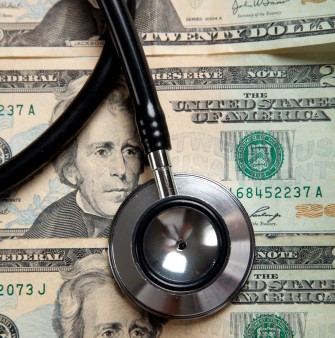About 91% of Americans are now covered by private or public health insurance through employers, the federal exchange, or Medicaid/Medicare. This impressive coverage rate is the highest in U.S. history, but lately critics, researchers, and policy-influencers are tipping the discourse toward the next big debate: does coverage make health care affordable enough?
The root of the problem: runaway, out-of-pocket expenses are making it nearly impossible for many Americans, even with insurance, to make their medical bill payments and gain access to health services. This issue extends beyond people with health plans created through the Affordable Care Act and includes people with insurance through employers too. Forms of cost-sharing or out-of-pocket expenses include: high deductibles, out-of-network charges, medical and drug copayments, and coinsurance.
In The Wall Street Journal, Drew Altman, the president and CEO of Kaiser Family Foundation, analyzed the growing trends in patient spending on deductibles (a specified amount of money that the consumer must pay out-of-pocket first before an insurer pays for services). Their analysis showed a 256% increase in deductible payments from 2004 to 2014 for insured people through larger employers, while wages increased by only 32% during the same period. In 2014, deductible accounted for 47% of all cost-sharing, up from 24% in 2004. Indeed, consumer polls indicated that deductibles are their top health-cost concern.

Source: Kaiser Family Foundation analysis of Truven Health Analytics MarketScanCommercial Claims and Encounters Database, 2004-2014; Bureau of Labor Statistics, Seasonally Adjusted Data from the Current Employment Statistics Survey, 2004-2014.Courtesy Kaiser Family Foundation
About 91% of Americans are now covered by private or public health insurance through employers, the federal exchange, or Medicaid/Medicare. This impressive coverage rate is the highest in U.S. history, but lately critics, researchers, and policy-influencers are tipping the discourse toward the next big debate: does coverage make health care affordable enough?
The root of the problem: runaway, out-of-pocket expenses are making it nearly impossible for many Americans, even with insurance, to make their medical bill payments and gain access to health services. This issue extends beyond people with health plans created through the Affordable Care Act and includes people with insurance through employers too. Forms of cost-sharing or out-of-pocket expenses include: high deductibles, out-of-network charges, medical and drug copayments, and coinsurance.
In The Wall Street Journal, Drew Altman, the president and CEO of Kaiser Family Foundation, analyzed the growing trends in patient spending on deductibles (a specified amount of money that the consumer must pay out-of-pocket first before an insurer pays for services). Their analysis showed a 256% increase in deductible payments from 2004 to 2014 for insured people through larger employers, while wages increased by only 32% during the same period. In 2014, deductible accounted for 47% of all cost-sharing, up from 24% in 2004. Indeed, consumer polls indicated that deductibles are their top health-cost concern.
Have you subscribed to the AIDS United Policy Update? Get the latest HIV news and policy developments in your inbox! Subscribe here.








1 Comment
1 Comment